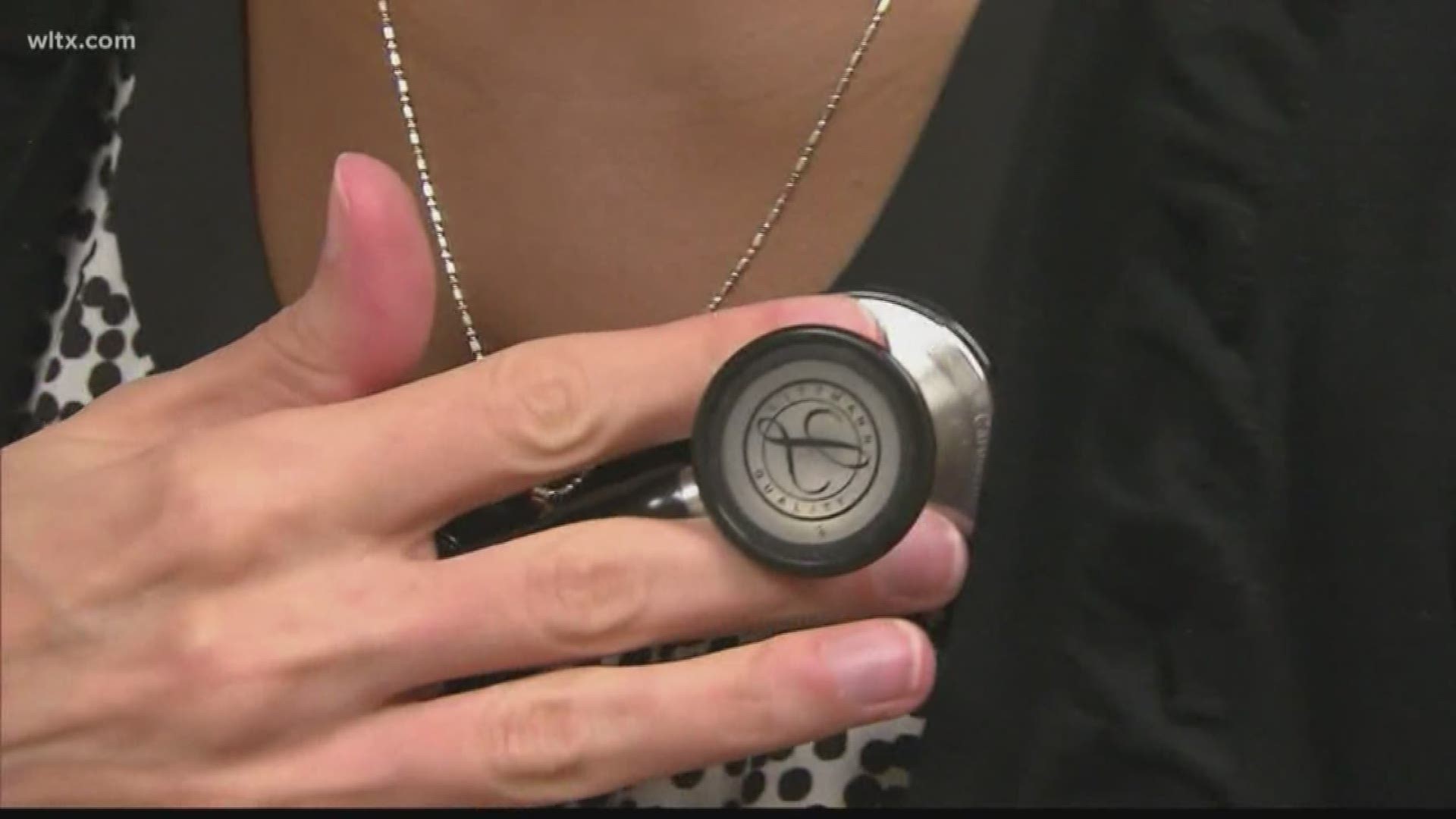COLUMBIA, S.C. — There’s no mystery. The risk of developing heart disease increases for everyone as they age. This is no different for women and yet many people still believe it is a man’s disease.
The American Heart Association (AHA) says it is the leading killer in women. In fact, one in three adult women, that’s over 30 percent of the adult female population, have some form of cardiovascular disease.
Midlife is not just a period where women have hot flashes and experience other menopausal symptoms. For women, the risk of developing cardiovascular disease goes up about 10 years after menopause.
Remember, menopause is not a disease, it is a natural part of aging and does not cause cardiovascular disease, however hormone fluctuations in midlife may play a part.
What are midlife women at risk for heart disease?
Estrogen, the primary female sex hormone, has a positive effect on your blood pressure and cholesterol, and both are beneficial when it comes to heart disease.
Heart doctors believe healthy levels of the natural hormone estrogen keep blood vessels flexible. That means the blood vessels can relax and expand to accommodate healthy blood flow. When estrogen decreases during menopause, blood vessels tend to get stiff. Women no longer have their natural protection against heart disease and stroke. Doctors believe this is the reason why women tend to develop heart disease ten years later than men.
According to a research team led by scientists at the University of Pittsburgh Graduate School of Public Health there is also evidence suggesting the changes that affect the heart may occur earlier in black women than white women.
How can women decrease their heart disease risk?
Less estrogen is not the only reason women are at risk. Estrogen does help protect the body but there can be other changes that happen during menopause.
Blood pressure and cholesterol tend to increase as well. Combine those changes with other lifetime bad habits like smoking cigarettes and vaping, a diet high in fat and cholesterol, or a family history of heart disease and there can be trouble ahead.
Despite the benefits of natural estrogen, The American Heart Association does not recommend postmenopausal hormone replacement therapy (HRT). Heart doctors say there is not enough proof HRT helps reduce the risk of heart disease. Instead they say the opposite has been shown. HRT could increase your risk of blood clots and cancer.
The American Heart Association does say it is reasonable to appreciate the benefits of estrogen and recommend helping your heart be healthy. The ticket to that includes behavior that can contribute to overall good health and delay the onset of menopause. Quitting smoking, getting regular exercise and eating a nutritious diet are all steps that are proven to significantly reduce the risk of heart attack.
The American Heart Association does recommend establishing a plan of action with your health care provider.

